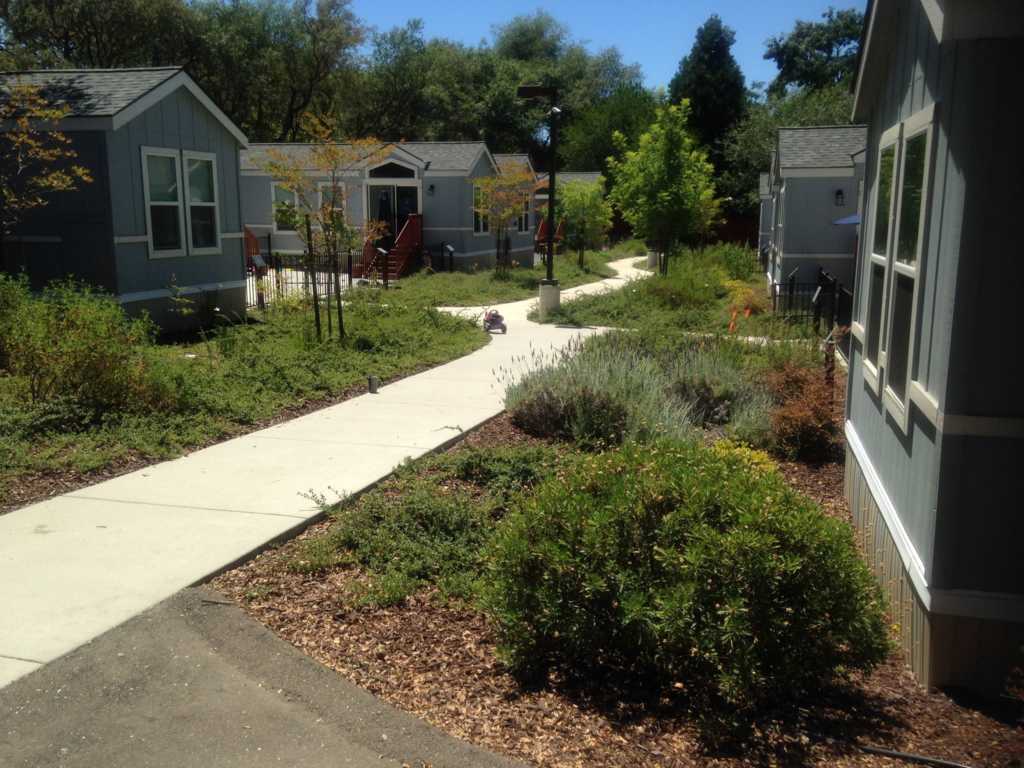The #MeToo movement has truly elevated the issues of sexual abuse and domestic violence, but one California charity has been working for years to elevate the women who have survived such atrocities.
Tucked away in Auburn, a city in the northern part of the state, is a neighborhood of tiny homes, a space that provides not just for visitors’ physical needs, but meets their psychological and spiritual requirements, too.
Acres of Hope, a faith-based charity, sees each of those needs as equally important.
“People need to have their basic needs met, obviously. They need to have food, clothing, shelter. But that’s not going to transform them,” Lisa Risdal, the organization’s executive director, told Faithwire. “That’s not going to equip them to be able to support themselves and their children. It’s not gonna equip them to succeed or even become a loving and nurturing mom.”
Faith Community Stunned After Man’s Brain Tumor Miraculously Disappears
More than having their immediate needs met, she added, the homeless and abandoned women who come to Acres of Hope need “transformation.” They need to be taught how to “cope in society” when the natural twists and turns of life come their way.
Many of the homeless women who seek out the Auburn-based nonprofit’s community have survived different kinds of trauma, some stemming from sexual abuse or domestic violence. Others are suffering with drug addictions or alcoholism. Some have simply struggled to break out of the cycle of homelessness.
Women who apply and are accepted to the Acres of Hope program after an extensive interview process can stay for up to two years. During that time period, the women — and their children — are given access to a tiny home that has been decorated and furnished specifically for them.
With all their physical needs provided for, Risdal said, it frees the mothers up to invest the necessary amount of time into their emotional and spiritual healthiness.
With PTSD Devastating Veteran Community, Here’s How YOU Can Make a Difference
Risdal said it’s important for the woman to learn they have “a loving God and that they have something that’s much bigger than themselves that they can lean on, that they can draw from, finding out that they are worthy, that they know what a safe and loving relationship looks like.”
“If your coping mechanisms were drugs and alcohol, or other destructive things in your life, and you take those away from somebody,” the director explained, “you have to replace them with something, because stuff’s gonna happen, and they need to learn how to cope with those things.”
“So being able to introduce them to the Christian faith and to our beliefs, they now have that ability to fall back on that,” she continued. “That becomes their coping mechanism, so they don’t have a tendency to go back into addiction. It’s huge in healing.”
And that’s the “transformation” Acres of Hope is pursuing. The charity certainly works to bring physical healing and benefits to the women who participate in the program — assisting them with everything from teaching basic home skills to restoring parental rights — but the emotional and spiritual restoration takes time.
California Fire: Nurse Describes Frantically Wrapping Up Newborn Babies and Fleeing to Safety
Risdal compared the process to metamorphosis, pointing out many forget about the gritty work that takes place in the chrysalis, before a caterpillar becomes a butterfly.
“People talk about the caterpillar and they talk about the butterfly,” she said, “but they forget about that period in the cocoon. It had to be painful, but it was also key. That transformation is what has to happen, you can’t just give the caterpillar butterfly wings and expect it to fly.”
Right now, Acres of Hope currently has enough space to house 10 families, though they would like to expand.
For those interested in helping Acres of Hope, which receives no government funding because it is faith-based, and the women currently living in the charity’s homes, Risdal encouraged people to “pray and pray hard.”
She also asked people to volunteer to help women in need — regardless of where they are — because even one hour of time “is so much more impactful” than people realize.
If you would like to make a donation to Acres of Hope or learn more about the nonprofit charity, click here.



